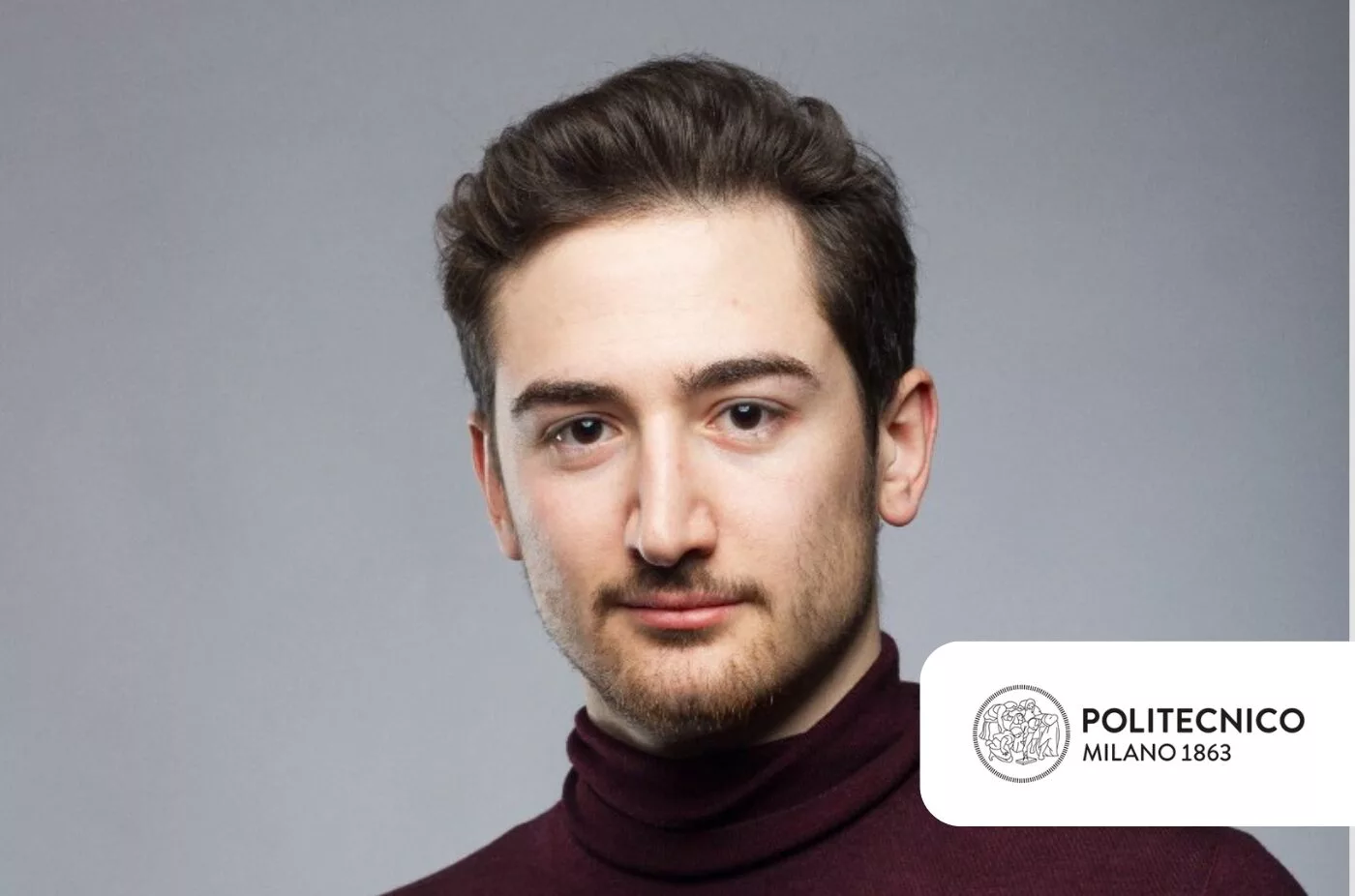Milan, February 29th: Giulio Vaccari, master student at the time of this interview, tells us how and why he spearheaded the use of Duckietown at the Polytechnic of Milan, one of the most important Italian engineering universities.
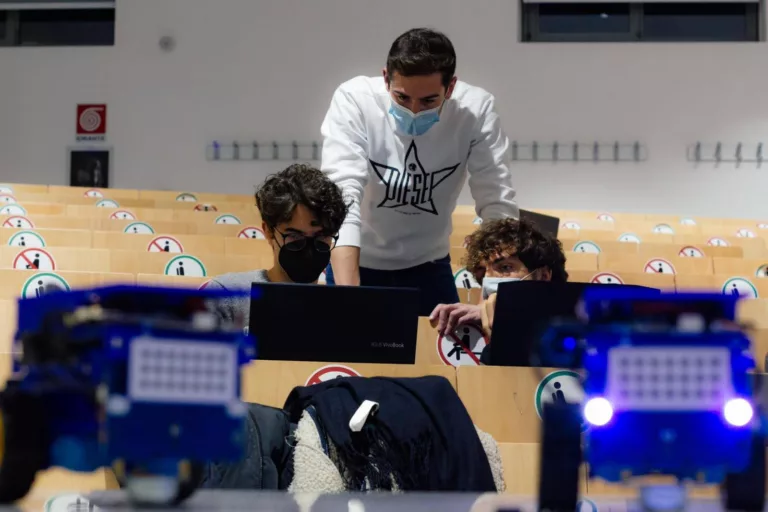
Spearheading Autonomy: Giulio Vaccari and the amazing student Automation Engineering Association (AEA)
An interview with Giulio Vaccari from the Polytechnic University of Milan
Hello and welcome Mr. Giulio Vaccari! Could you introduce yourself?
My name is Giulio Vaccari, and I’m a master student at the Politecnico di Milano (“Polimi”). I am studying automation and control engineering and I am right now in the process of finishing my thesis with Duckietown. During my five years here, I founded the student Automation Engineering Association, focused on automation engineering. At the “Polimi” the course of control and automation engineer is not super big, now it’s getting bigger. More and more people are joining, but it’s still pretty small compared to, for example, computer science or other bigger courses. The idea of our association was to help with networking, help to understand what are future possible career paths as automation engineers. That’s why together with some friends we decided to found the association some years back.
Very interesting. How does Duckietown fit in all this?
It all started when I met and talked with Jacopo Tani and Vincenzo Polizzi I believe three years ago.
I had some friends, older friends, at ETH Zurich that introduced us to Duckietown as a possible project for our association, that at the time was still pretty small. We were newborn and we liked the idea of start working with Duckietown right away, because we were looking for a project that we could treat like a competition. It’s easier to get more people to know each other and network, when they have a common goal, as there are common topics to discuss.
I wanted something that would help us develop teamwork skills, something around which to build a strong team. Then this idea evolved a little bit and now we have a very focused and skilled team that works with aim of doing good at the Artificial Intelligence Driving Olympics (AI-DO). We did our first competition in 2021, in December, and it went well. Now we are improving. We are still working on it.
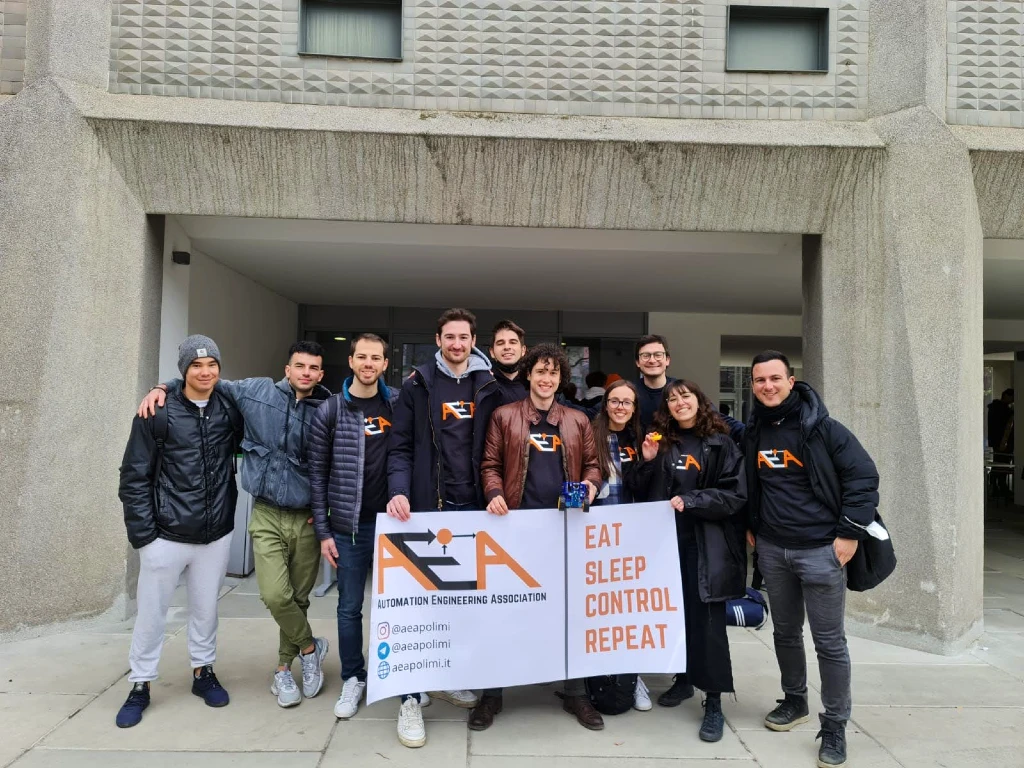
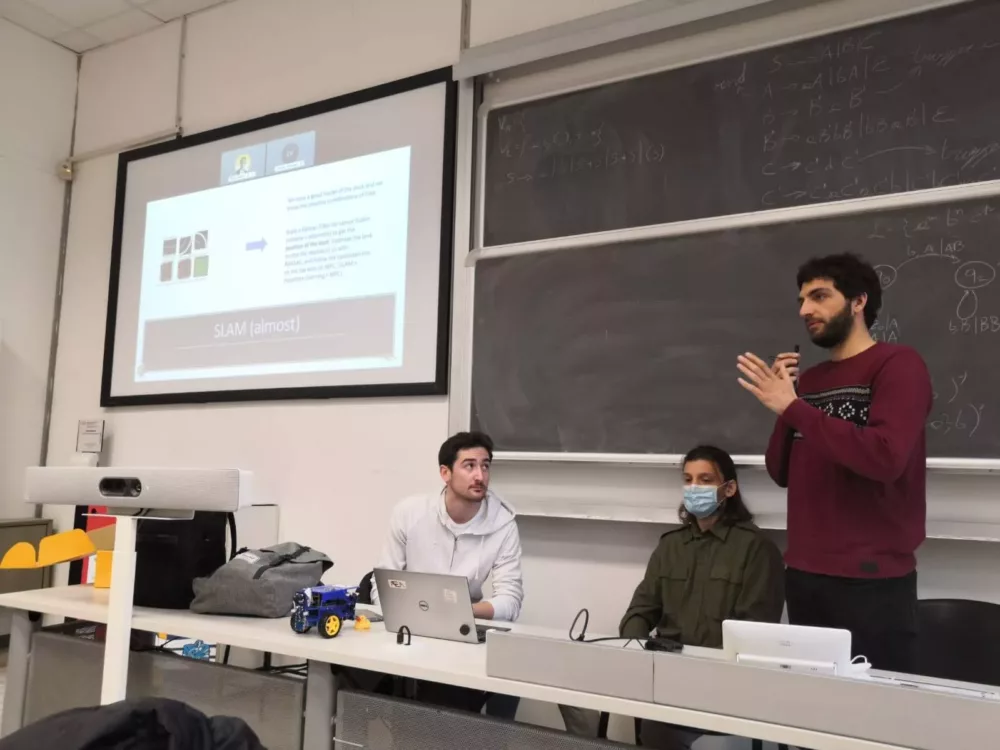
Could you tell us more about your team's experience with the AI-DO competition?
Sure! We ended up being finalist, I’m very proud of that! In the meantime, I talked with some professors to try to get some help to improve what we were doing with Duckietown, to have some suggestions on what we should focus on. I was lucky enough to meet a Professor, now my thesis advisor, who had already heard about Duckietown and liked it. I was very happy that we were able to bring Duckietown to the Politecnico of Milano. Although the AI-DO are over now, I’m still doing related work, so I’m able to help the team do better while working on my thesis. Duckietown is now part of the laboratory for autonomous driving here at PoliMi, and I feel like managing to get Duckietown to be adopted by the Politecnico di Milano is a pretty big thing that I’m still proud of!
And you should be! Do you use Duckietown also in the activities of the association?
When it comes to the association, we are focused on AI. We have a team of around 20 people working on different things. We use Duckietown also to do outreach when we have, for example, “associations days”, which are open days when students from high schools come and visit the University. That’s when we showcase Duckietown to show both what we do as an association but also what a control engineer is supposed to do, because it’s very difficult to explain otherwise.
What do you like about Duckietown? Why do you think it is useful for what you do?
Through Duckietown, it’s very easy to implement ideas in the real world. Usually if you need to build something like that from scratch, it will be super difficult. There are a lot of failure points, while with Duckietown we can just deploy it and it just works. This is super cool. We can also test a lot of different control strategies with very low effort. I mean, just the fact of writing the control algorithm, deploying it and it just works is huge. So this makes things super easy. Duckietown is very friendly and easy to use. It’s not something you often see in robotics, which is instead usually very complicated and intimidating. Yes, very intimidating. And Duckietown is even very friendly looking, and this is definitely a big plus!
Do you think people that are using Duckietown, are satisfied with it?
Yes, we had really positive feedback. I mean, everyone is really happy to work with Duckietown and we had so many people applying that we had to limit the team size because that would’ve made it very difficult to manage all those people. So I would say it had a very positive impact in general on the association. People are generally enthusiastic to just see the robots going around.
There are a lot of failure points in robotics, while with Duckietown we deploy our algorithms and it just works. This is super cool. We can test a lot of different control strategies with very low effort.
Giulio Vaccari
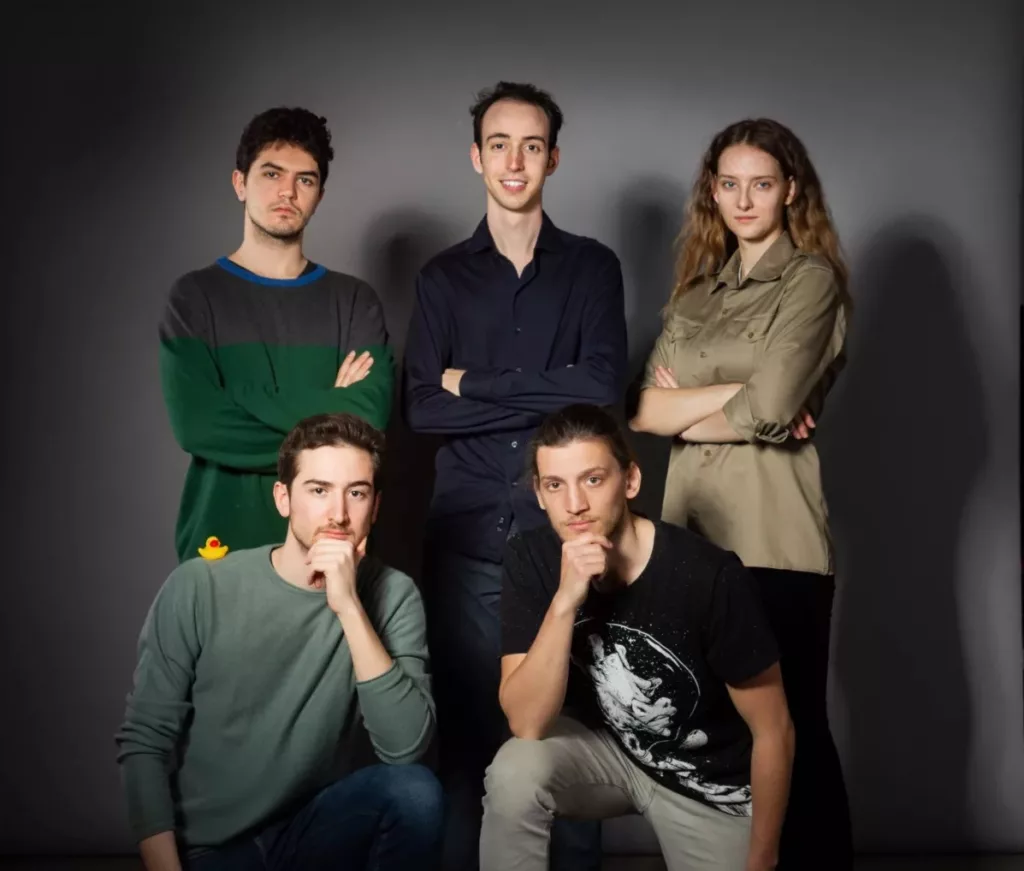
Would you suggest it to colleagues or other student associations?
Yes, for sure. But I see that it’s not only our team; also the Professor that I’m working with is very happy to be able to use it, also as a benchmark for different controls. There are other universities that have their very specific tracks to run their robots, while with Duckietown, it’s super easy to test like, the same strategy in different environments, but still with the same basics. This is a very positive thing also for the university.
Thank you very much for taking the time, we appreciated your story very much! Is there anything else you would like to add?
Right now I’m working on a different subject. So I’m using still Duckietown, but not in a city environment, but in a racing environment. My objective is to set up a racing track and have two robots compete against each other. They are still not competing, but we are getting close. It’s very nice that together with the Duckietown team, we are working on the urban environment, using different kind of materials to create these racing environments. I think it’s very cool.
There are also some issues every now and then. Maybe something that is not super easy to find, something that is very in depth, some APIs. If you want to use them, you need to dive deep. There is a support Slack channel though, and it’s super easy to ask for help. This too I believe is very nice and just adds to the positive experience.
Special Giulio Vaccari content!
We found in our archives the video submission of Giulio Vaccari and his team at AEA on the occasion of the 2021 AI Driving Olympics finals. In this fun, short, video team PoliMi explains the rationale and challenges faced in developing an ML-based agent for the 2021 competition!
Learn more about Duckietown
Tell us your story
Are you an instructor, learner, researcher or professional with a Duckietown story to tell?
Reach out to us!

